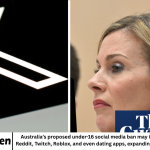In Florida, a newly rebranded radio station has ignited both fascination and controversy by adopting former President Donald Trump’s image and name as part of its branding strategy. This bold move is not just a marketing gimmick—it is a calculated attempt to tap into the powerful political and cultural influence Trump continues to hold, particularly in the Sunshine State. The decision reflects the growing intersection of politics, media, and identity branding in America. It also raises important questions about the role of media outlets in shaping public opinion and the risks of tying a station’s entire identity to a figure as polarizing as Trump.
- The Background of Florida’s Radio Culture
- The Decision to Rebrand with Trump’s Name and Image
- Trump as a Media Brand
- The Business Angle: A Survival Strategy for Radio
- The Political and Cultural Implications
- Criticism and Controversy
- Supporters See a Bold Statement
- The Future of Politically Branded Media
- Expert Opinions on the Move
- What It Means for Trump Himself
- Public Reactions on Social Media
- The Role of Florida in Trump’s Political Identity
- Possible Ripple Effects Across the Media Landscape
- FAQs
- Why did the Florida radio station adopt Trump’s name and image?
- Is this the first radio station to use a political figure’s name for branding?
- What are the risks of tying a brand to Trump?
- How have people reacted to the rebranding?
- Could this trend spread to other media outlets?
- Does the station benefit Trump directly?
- Conclusion
For decades, radio has been a lifeline for communities in Florida, connecting listeners with music, news, and talk shows that reflect their values and concerns. But in recent years, traditional radio has faced mounting challenges from podcasts, streaming platforms, and digital-first media outlets. By aligning itself with Trump, the station is making a gamble: betting that his popularity and brand power can cut through the noise and reignite listener loyalty. This article explores the implications of this branding shift, its cultural and political context, and what it means for the future of radio and political media in the United States.
The Background of Florida’s Radio Culture
Florida has long been a hub for politically charged radio programming. The state’s diverse population—ranging from retirees to immigrants to young professionals—creates a unique listening landscape where talk radio and political commentary thrive. From conservative icons like Rush Limbaugh, who spent much of his career broadcasting from Palm Beach, to more localized voices shaping community conversations, Florida’s radio scene is as dynamic as its demographics.
With millions of daily listeners across AM and FM stations, radio remains an important medium, especially among older audiences who still prefer it over digital streaming services. According to Nielsen Audio, nearly 80% of Americans still listen to radio weekly, with conservative talk radio dominating airwaves in Republican strongholds. Florida, a state that played a pivotal role in both Trump’s 2016 and 2020 campaigns, has been fertile ground for pro-Trump content. The state’s political climate, coupled with Trump’s residence in Palm Beach, makes the branding move by this radio station both bold and strategic.
The Decision to Rebrand with Trump’s Name and Image
The radio station’s choice to embrace Trump’s image and name is not accidental. Branding experts note that Trump’s name carries immense recognition value. Love him or hate him, Trump is a household name globally, and his brand evokes strong emotional responses. For the station, this translates into a marketing opportunity: a way to stand out in a crowded market by aligning with a figure who embodies controversy, loyalty, and power.
This decision, however, is not without risks. By tying its identity so closely to Trump, the station potentially alienates a segment of the population that strongly opposes him. Yet the station appears to be targeting a core demographic—Florida conservatives who view Trump as a champion of their values. According to a recent Pew Research poll, nearly 70% of Florida Republicans hold a favorable view of Trump, suggesting that the station’s gamble may indeed resonate with its intended audience.
Trump as a Media Brand
Donald Trump has always understood the power of branding. Long before his presidency, he built a global business empire on his name, plastering “Trump” on hotels, casinos, golf courses, and even bottled water. During his presidency, he effectively transformed himself into a media brand, using rallies, tweets, and interviews to dominate headlines. For many supporters, Trump’s image represents strength, defiance, and an alternative to what they see as mainstream media bias.
Media analysts argue that Trump is not just a political figure but a cultural phenomenon. His ability to command attention and mobilize audiences has few modern parallels. By adopting Trump’s brand, the Florida radio station is essentially betting that his aura will rub off on them, giving the station instant relevance and a built-in audience base.
The Business Angle: A Survival Strategy for Radio
Radio stations across the United States have struggled in recent years to remain competitive. With advertising dollars shifting to digital platforms like YouTube, Spotify, and TikTok, traditional radio has been forced to adapt or risk extinction. Aligning with Trump offers a form of survival strategy. By creating a niche identity that directly appeals to a loyal audience, the station ensures a steady stream of listeners and advertisers who want access to that demographic.
From a business perspective, this is akin to hyper-targeted marketing. Instead of trying to please everyone, the station is choosing to serve a specific, passionate group of listeners. Conservative advertisers, political groups, and even local businesses sympathetic to Trump’s brand may see this as a golden opportunity to reach their audience.
The Political and Cultural Implications
The station’s rebranding is not just about business—it’s about politics and culture. Media scholars suggest that this reflects the increasing politicization of entertainment platforms. Where radio stations once focused primarily on music or neutral talk programming, today’s stations are more willing to declare their ideological leanings.
Florida’s political landscape makes this move especially significant. As a key swing state with a high-profile role in presidential elections, Florida often reflects broader national trends. By adopting Trump’s image, the station is not only aligning with a popular figure but also signaling a cultural identity that many Floridians embrace. This blending of politics and media underscores the deepening divides in American culture, where even radio stations become symbols of political allegiance.
Criticism and Controversy
Unsurprisingly, the decision has sparked controversy. Critics argue that by adopting Trump’s name and image, the station risks becoming less of a community broadcaster and more of a political propaganda tool. Some worry that such branding undermines the role of media as a neutral source of information, turning it instead into a partisan echo chamber.
Others raise legal and ethical questions. While Trump’s name and image are not copyrighted, their use in commercial branding can raise intellectual property issues. If Trump or his legal team objects, the station may face lawsuits or be forced to rebrand again. There are also concerns about what happens if Trump’s popularity wanes or if he becomes embroiled in further legal controversies. Tying a brand to one individual can be both a blessing and a curse.
Supporters See a Bold Statement
On the other hand, supporters view the station’s move as a bold and refreshing statement. For loyal Trump voters, this branding reflects their values and identity in a way that mainstream media rarely does. Some listeners see it as a form of resistance against what they perceive as liberal media bias. By dedicating itself to Trump’s brand, the station is, in their view, “telling it like it is” and refusing to bow to political correctness.
Interviews with local listeners suggest enthusiasm among conservative Floridians. One retiree in Palm Beach described the move as “the first time a station actually represents who we are.” Another listener noted that while she previously tuned out of traditional media, she now feels energized to support the station because it aligns with her political beliefs.
The Future of Politically Branded Media
The Florida radio station may be pioneering a trend that could spread nationwide. As audiences become more fragmented and politically divided, media outlets are likely to lean into branding that appeals directly to niche communities. Politically branded media outlets—whether pro-Trump, pro-Biden, or otherwise—may become the new normal in a landscape where neutrality feels increasingly obsolete.
However, this trend comes with significant risks. Political cycles shift, public opinion changes, and the loyalty of audiences is not guaranteed. What works as a powerful brand today may become a liability tomorrow. The challenge for the Florida station will be maintaining relevance if Trump’s influence fades or if public opinion dramatically shifts.
Expert Opinions on the Move
Media experts are divided on the wisdom of the station’s rebranding. According to political communication professor Dr. Linda Abrams, “This is a risky but potentially rewarding strategy. Trump’s brand is strong, but it is also volatile. The station is making a short-term bet that could pay off financially, but the long-term consequences remain uncertain.”
Meanwhile, marketing strategist John Ramirez suggests that the station is simply adapting to the realities of modern media. “We live in an age where identity and branding drive consumer behavior. People no longer just consume content; they consume values and identity. This station is capitalizing on that trend by making Trump its identity.”
What It Means for Trump Himself
Interestingly, the station’s decision also benefits Trump. Every time his name or image is used, it reinforces his cultural presence. For a political figure who thrives on visibility and brand recognition, this move further cements his role as a central figure in American life. Even if Trump is not directly involved with the station, the association strengthens his ongoing relevance in public discourse.
Public Reactions on Social Media
Social media platforms have been abuzz with discussions about the rebranding. Supporters flood Twitter and Facebook with praise, calling it a “genius move,” while critics label it “desperate” and “dangerous.” On TikTok, clips of the station’s promotional material have gone viral, sparking debates about whether media should align so closely with political figures.
These online conversations highlight the divisive nature of the branding. For every person who sees it as empowering, there is another who sees it as reckless. Yet the sheer volume of discussion proves one thing: the strategy has succeeded in making the station relevant and part of the national conversation.
The Role of Florida in Trump’s Political Identity
Florida is more than just Trump’s home state—it is central to his political identity. Since leaving the White House, Trump has positioned himself as a Florida figure, holding rallies across the state and using Mar-a-Lago as his political headquarters. His popularity among Florida Republicans is unmatched, making the state a natural place for a Trump-branded radio station to flourish.
The station’s move also reflects the broader trend of Florida becoming a conservative stronghold. Once considered a swing state, recent elections suggest it is leaning more Republican, making the Trump brand even more potent here.
Possible Ripple Effects Across the Media Landscape
If the Florida station’s experiment proves successful, other media outlets may follow suit. Imagine stations branding themselves after figures like Ron DeSantis, Kamala Harris, or even cultural icons tied to certain values. The fragmentation of media could accelerate, leading to a landscape where every outlet openly declares its allegiance to a particular figure or ideology.
While some may welcome this transparency, others fear it will further erode trust in media institutions. According to Gallup, trust in mass media is already near historic lows, with only 34% of Americans saying they have a “great deal” or “fair amount” of trust in the media. The rise of politically branded stations may deepen this mistrust by reinforcing echo chambers.
FAQs
Why did the Florida radio station adopt Trump’s name and image?
The station adopted Trump’s branding as a way to stand out in a crowded market and appeal to Florida’s large base of Trump supporters. It’s a strategic move aimed at capturing a loyal audience and advertisers who align with Trump’s values.
Is this the first radio station to use a political figure’s name for branding?
While many stations lean politically, this is among the first to directly use a political figure’s name and image in its branding. It represents a new level of politicization in media.
What are the risks of tying a brand to Trump?
The main risks include alienating non-Trump supporters, potential legal disputes over the use of his name and image, and the possibility that Trump’s popularity could decline in the future.
How have people reacted to the rebranding?
Reactions are mixed. Supporters applaud the move as bold and refreshing, while critics see it as reckless and partisan. Social media has amplified both praise and backlash.
Could this trend spread to other media outlets?
Yes, if the Florida station’s strategy proves successful, other outlets may adopt similar branding tied to political or cultural figures. However, this could further fragment the media landscape.
Does the station benefit Trump directly?
While Trump may not be financially tied to the station, the use of his name and image reinforces his cultural presence and keeps him relevant in the national conversation.
Conclusion
The Florida radio station’s decision to embrace Donald Trump’s image and name is more than just a rebranding—it is a cultural statement, a business gamble, and a reflection of America’s deeply divided media environment. By aligning itself with one of the most polarizing figures in modern history, the station is ensuring relevance but also inviting controversy. Whether this bold move signals the future of politically branded media or simply an isolated experiment will depend on how audiences respond in the months and years to come.








